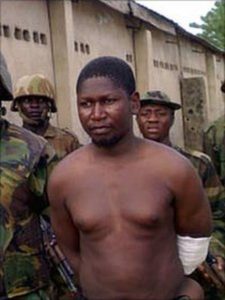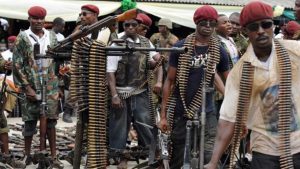Why The Nigerian Government is releasing Boko Haram detainees back into Society

The Nigerian government has been systematically releasing ex Boko Haram members back into society since 2016.
The government claimed those released were repentant former militants who have gone through the Deradicalization, Rehabilitation, and reintegration (DRR) program and are now set to be reintegrated into society.
Trouble started in 2009 when BokoHaram declared war on the Nigerian state after the extrajudicial killing of its then leader, Mohammed Yusuf.

In 2017, former governor Kashim Shettima of Borno state said the Boko Haram insurgency had led to the deaths of almost 100,000 persons going by the estimates of local community leaders over the years.
Over 14 million Nigerians have also been directly affected by the humanitarian crises in the North-East region of the country, two international humanitarian groups reported.
The groups also said 13,000 churches were razed, 1,500 schools shut, and 611 teachers have been killed by the teachers so far.
Boko Haram wants to replace Nigeria’s secular constitution with its extreme version of Islamic Sharia law and so far the group’s violence has defied the solution.
Read more: Dangote Refinery and Petro-Chemical complex, explained
In 2019, Nigerian senator, Ibrahim Gaidam proposed the creation of a new government agency, the Commission for repentant Boko Haram members.
The senator said the agency when established will help rehabilitate and reintegrate defectors, repentant and forcefully conscripted members of the terror group to make them a useful part of the society and provide an avenue for reconciliation.
The agency will create vocational rehabilitation for the members: which will give detainees opportunities to learn carpentry, clay shaping, pottery, use of art through drawing among others.
Not everyone supports the bill, many Nigerians said it is insensitive to introduce such a bill when the insurgents are still killing and destroying.
Others believe the funds needed to form the commission could be deployed to cater for the welfare of the numerous internally displaced victims of the insurgents.
Alternate argument
Another argument being pushed by a few to support the initiative is the need to give the same ‘treatment’ meted to Niger-Delta militants in 2007 when the federal government extended an olive branch to them.

Sabotage of oil installations, bombings, and kidnappings by the militants who said they were fighting to gain a greater share of the country’s oil wealth hit Nigeria for many years. It was only halted when the government reached out to them.
Late President Umaru Yar’adua then offered an unconditional pardon and cash payments to rebels who agreed to lay down their arms and assemble in screening centers across the Niger-Delta.
